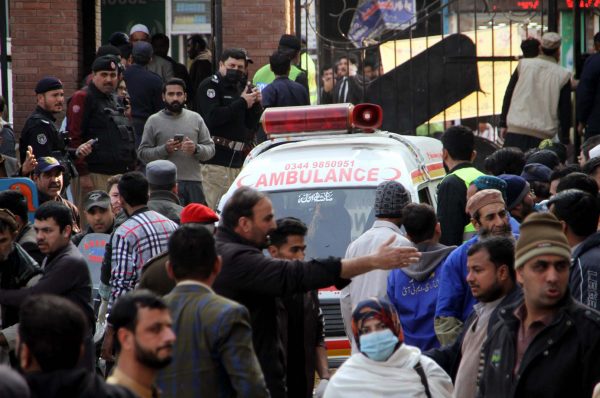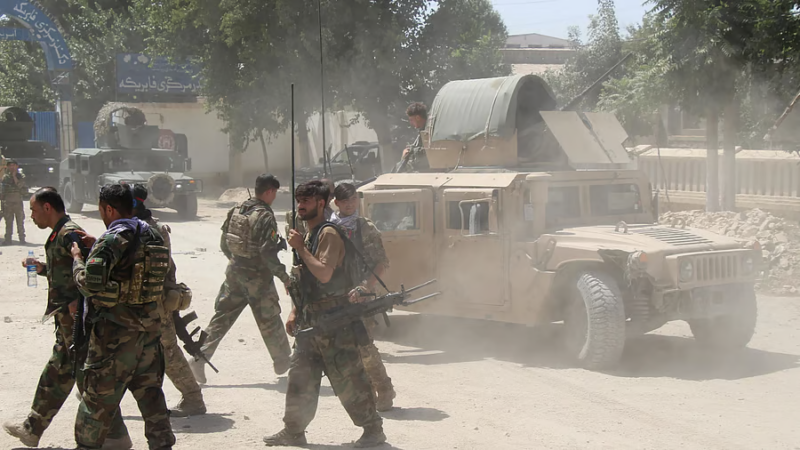How to explain Pakistan’s return of militant bloodshed

In 2013, there were an average of just under four terrorist strikes per day in Pakistan, resulting in close to 2700 deaths. With nearly 200 terrorism-related events and at least 340 deaths by March, the most recent patterns indicate that 2023 might be worse.
Is Pakistan experiencing the ominous ghost of 2013 again? Maybe. December 2022 ended the year as the bloodiest month for Pakistan’s security services in more than a decade, setting the tone for the months that followed. Among the 973 deaths in 2022 there were approximately 282 police and military employees.
A new terror trio is the source of this bloodshed. The Islamic State of Khorasan Province (ISKP), the local affiliate of ISIS, the Tehrik-e-Taliban Pakistan (TTP), and the indigenous Baloch Liberation Army (BLA) are included in it.
The unilateral cancellation of a year-old ceasefire by the TTP on November 28, 2022, when it accused the government of “breaching commitments” and criticized Pakistani security forces for their conduct in the bordering Afghan provinces of Khyber Pakhtunkhwa and Balochistan, is one of the immediate explanations for the unprecedented wave of terrorism.
The TTP wants the freedom of scores of its imprisoned members as well as the reinstatement of the special status of seven frontier areas that were revoked in May 2018. In order to probably create its own Islamic state, it also wants the Pakistani troops out of formerly off-limits regions. These requests were dismissed by Islamabad as “non-negotiable.”
The dissolved TTP has sought refuge in safe havens in Afghanistan after being subjected to an intensified assault since early 2021, particularly after the Afghan Taliban surged back into power in August 2021. The TTP hierarchy, including their commander Noor Wali Mehsud, currently reside in Afghanistan and are treated kindly.
Talks with the Afghan Taliban government have become tense over the senior TTP leadership’s position there and their independence there. As a result of the bloodshed in Pakistan, Islamabad is calling for the TTP to face penalties. Mehsud did not deny that his terrorists have been on the rampage in Pakistan, but he disputed that his group was using Afghan territory for strikes on targets outside of Afghanistan.
Kabul looks hesitant for a number of reasons to take immediate, decisive action against the TTP. Both sides of the Pakistan-Afghanistan frontier are home to groups that are primarily of Pashtun ethnicity in the Khyber Pakhtunkhwa province, including the TTP, which derives power from the local population.
The TTP shares racial and doctrinal affinities with the Afghan Taliban, another mainly Pashtun organization. During the twenty years of the War on Terror, they collaborated against the US-led NATO troops in Afghanistan. It is not surprising that the majority of the TTP’s senior commanders moved to safe havens in Afghanistan once Pakistan started tracking down militants in the frontier areas.
Terrorism may also be influenced by geopolitical circumstances. The East Turkestan Islamic Movement and the ISKP, both headquartered in Afghanistan, openly pledged to harm Chinese interests in the area against the background of the fierce US-China competition. Numerous new books and periodicals are among the ISKP’s hundreds of products that are dedicated to China and its regional interests.
Beijing views these organizations as Western fronts seeking to harm Chinese interests. It takes into account their murder of several Chinese citizens in Pakistan, almost all of whom were engaged in work related to the multi-billion dollar China-Pakistan Economic Corridor, a centerpiece of the Belt and Road Initiative. Beijing also queries why the United States removed the East Turkestan Islamic Movement’s classification as a “terrorist organization” in November 2020, claiming that there is no convincing proof that the group is still active.
Another important contributory element might be the lack of coordinated civil-military activity. It motivates the TTP, who are referred to as “proxy terrorists” by Pakistani authorities, to intensify their terrorism operation.
Numerous terrorists had been eliminated by unrelenting military actions in the unstable frontier regions up until the beginning of 2022. According to projections from the Pakistani military and the commercial sector, the pace of extremist violence in Pakistan decreased by 85% as a consequence.
Critics blame Pakistani military meddling in domestic politics for the resurgence of violence by ISIS-affiliated ethnic Pashtun and Baloch terrorists and rebels. In spite of making a deliberate decision in early 2021 to halt “unconstitutional interference,” former Chief of Army Staff Qamar Javed Bajwa acknowledged that the military had been interfering in politics in a broadcast address on November 27, 2022, just days before he resigned. Bajwa acknowledged that he continued to “manage” Pakistani lawmakers, media, and international affairs even after his departure.
The extraordinary political and economic turmoil Pakistan has been going through for more than a year, along with the impending threat of a government debt default, is even more important than Bajwa’s admittance. The nation was thrown into political limbo when former prime minister Imran Khan was ousted in a contentious motion of no-confidence in April 2022.
Since March 2022, the military has never been more involved in politics thanks to Khan’s accusations that Bajwa helped bring about his ouster. The majority of Pakistanis hardly give Khan’s assertion, which was followed by unparalleled political volatility and an economic collapse, any credibility despite a public reiteration of his “neutrality.”
This has also had an impact on the military’s continuing fight against terrorist groups and appears to have given terrorists the confidence to increase pressure, particularly on Pakistan’s security forces. This trend indicates that Pakistan will probably experience increased bloodshed in 2023.






